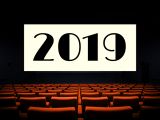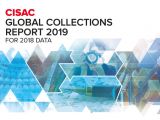Blog
-

How COVID-19 contaminates the film sector
The last month we have seen the COVID-19 sweep through Europe like a whirlwind, leaving everyone affected and deeply worried. The impact is immediate and the long-term consequences yet to be seen. As public life is being increasingly restricted to ‘flatten the curve’, bars, restaurants, concert venues, theatres, cinemas and museums are being closed. While these measures save lives, they are very much impacting those working in the cultural and creative sectors.
Read more -

2019: A year of changes
2019 was a year of changes, which brought us into a new reality. It was the year when a long battle with getting positive new copyright legislation through was finally overcome and the year when a completely new Parliament and Commission was elected.
Read more -

3 ways filmmakers support the SAA
The SAA was created in 2010 by 9 collective management organisations, with the support of the European screenwriters and directors whose rights they manage. Ten years later, the SAA has grown to 33 CMO members and is backed by a board of Patrons of 34 prominent filmmakers from different countries and working experiences.
Read more -

Shrinking space for filmmakers’ artistic freedom in Europe
Freemuse, an independent international organisation, has in a recent report, for the first time, put the spotlight on Europe’s alarming rise of populism, undermining of cultural diversity and use of restrictions on artistic freedom in several countries. The topic was discussed on 21 January by Members of the European Parliament and representatives from the creative and cultural sector.
Read more -

“What is an author if they don’t have the right to express themselves?”
Every year, the European Parliament celebrates European cinema and cultural diversity through the LUX Film Prize Award. The SAA is proud to participate to this celebration by organising a dinner, in partnership with FERA and FSE, gathering Members of the European Parliament, our members and the LUX Film Prize finalists. This year, our guests reminded us that freedom of artistic expression cannot be taken for granted and needs to be upheld and protected at all times.
Read more -

Figures don’t lie, filmmakers’ rights need to be strengthened
Every year CISAC publishes its global multi-repertoire collection report, taking stock of trends and development of the authors’ royalties collectively managed by 239 CMOs in 122 countries. The figures don’t lie: where an unwaivable right to remuneration is implemented, creators’ right to receive royalties for the exploitation of their works can be guaranteed.
Read more -

“Women at CISAC” - towards 50/50 in authors’ societies
On 4-5 November, representatives from the International Confederation of Societies of Authors and Composers (CISAC) met in Lisbon to discuss how to advance gender equality within collective management organisations (CMOs) and increase women creators among members and on the boards. The SAA was among them.
Read more -

Meet our member: SSA in Switzerland
In 2020, filmmakers in Switzerland will have an unwaivable and mandatory right to remuneration for the exploitation of their works by on-demand services, collectively managed.
Read more -

Brussels EU quarters back to business
Brussels European quarters are back to business: traffic jams, overpopulated coffee places and queues to pass security into the institutions. Inside the European Parliament, the last carpets are being laid and furniture assembled in the 751 offices.
Read more -

Welcome back!
On the 2nd of September, 751 Members of the European Parliament resumes their work. Before the summer break, the SAA had the chance to welcome a few and we look forward continuing to meet and present who we are and why European filmmakers should be a priority for the Parliament.
Read more -

Interview with SAA's Director: The film industry and the online market
As a part of the International Confederation of Societies of Authors and Composers (CISAC) open online course (MOOC), Cécile Despringre, SAA Executive Director was interviewed about creators’ remuneration, collective rights management, the film industry and the online market.
Read more -

Meet our member: Kopiosto in Finland
On 1st July, Finland takes over the Presidency of the Council of the EU. Finland is the number one happiest country in the world, has 3 million saunas (more than they have cars) and Finns are the biggest coffee drinkers in the world (12kg per person per year). Kopiosto, the Finnish copyright organisation, has actively been promoting creative works for more than 40 years, and joined the SAA as a member in 2010.
Read more
